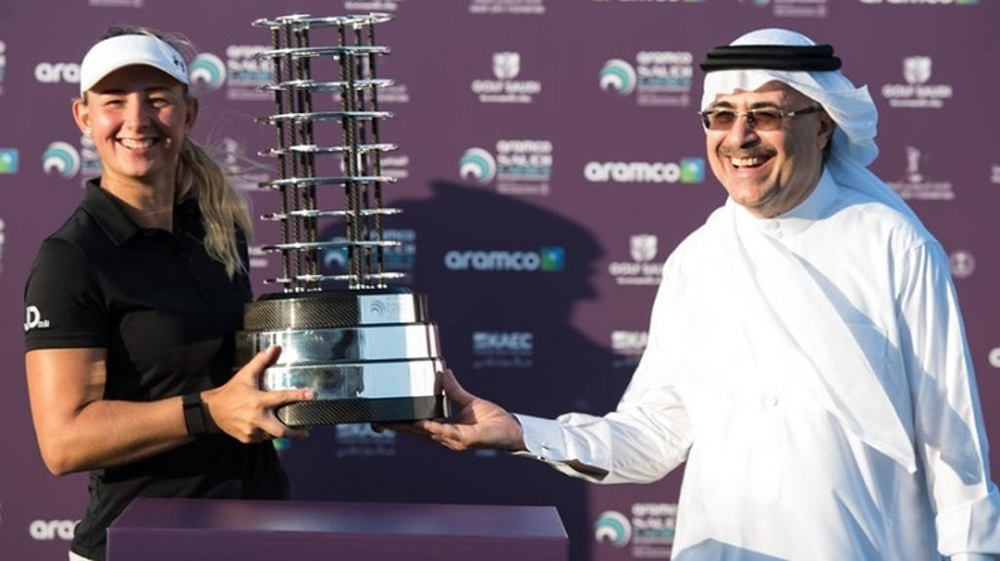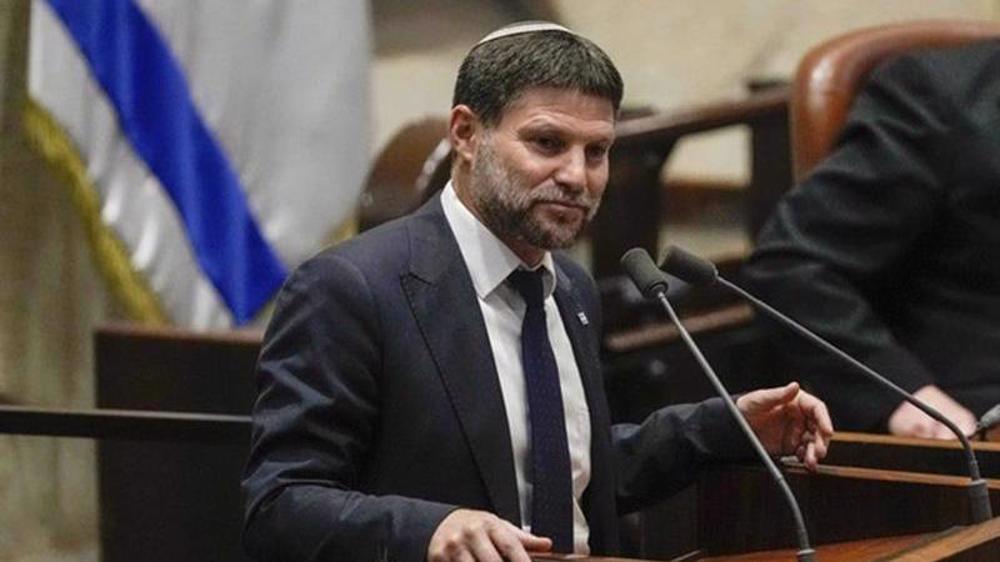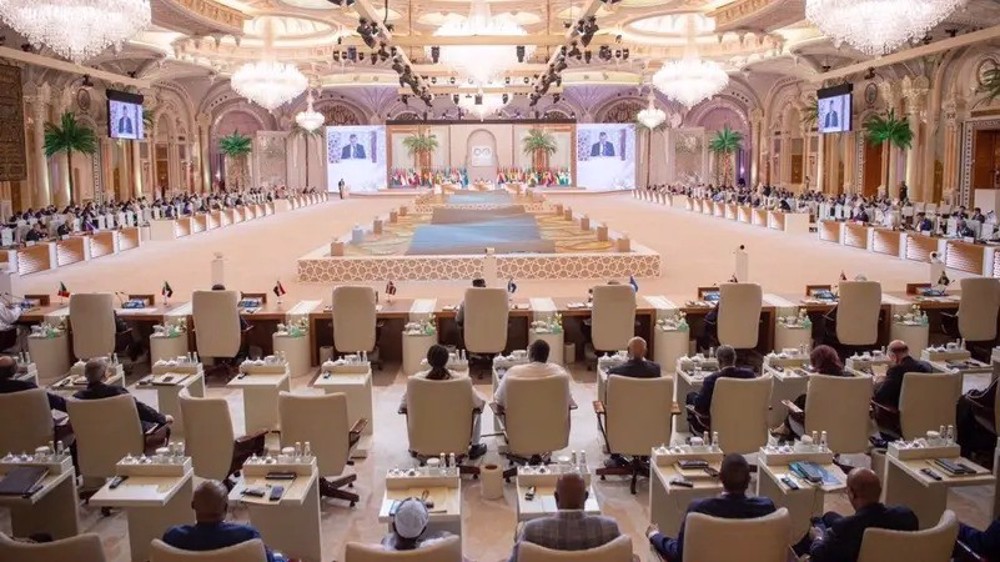Saudi Arabia uses ‘sportswashing’ to enhance human rights image: Rights groups
Rights groups have denounced Riyadh for using the first-ever women’s golf tournament in Saudi Arabia to “sportswash” the tarnished human rights image of the highly conservative country.
On Sunday, Emily Pedersen from Denmark finally managed to secure the $150,000 winner’s check in the inaugural Saudi Ladies International at the King Abdullah Economic City close to the western city of Jeddah.
However, the widely publicized event, according to Amnesty International and other rights groups, was in fact a “sportswashing” exercise designed to soften the Arab kingdom’s austere image.
The term “sportswash,” credited to 2015’s Sports or Rights campaign, is generally used when corrupt and tyrannical regimes make use of a high-profile sports event as a means to launder their reputation and/or gloss over their miserable records on human rights.
According to the rights groups, the golf event glossed over the Arab kingdom’s poor human rights record and the imprisonment of a number of female activists who have called for reforms.
For the past few years, Saudi Crown Prince Mohammad bin Salman, the country’s de facto ruler, has been apparently seeking to bring about social reforms. Part of the flamboyant reforms is his push for investment in glitzy sports and entertainment events in an attempt to enhance the image of Saudi Arabia.
Back in March, the regime hosted the world's richest horse race, after staging the Italian and Spanish football Super Cups in 2019.
Saudi Arabia already hosts the Dakar Rally, a 12-day marathon through the Arabian Desert, and the all-electric Formula E series, as well as a series of boxing, golf, and tennis events.
Earlier this month, Riyadh announced that it would host a Formula One Grand Prix for the first time next year.
“Saudi citizens and residents should enjoy top-notch entertainment and sporting events, but they also should enjoy basic rights such as free expression and peaceful assembly,” said Michael Page, deputy Middle East director at Human Rights Watch.
“So, when Hollywood A-listers, international athletes, and other global celebrities take government money to perform in Saudi Arabia while staying silent on the government's atrocious rights record, they are boosting the kingdom's strategy of whitewashing Crown Prince Mohammad bin Salman's abuses.”
Despite the ostentatious efforts in holding high-profile sports events and pushing through the so-called reforms, the Saudi regime has faced intense diplomatic fallout over the gruesome murder of dissident journalist Jamal Khashoggi, a US-based Washington Post columnist, which took place in the kingdom's consulate in Istanbul, Turkey, in early October 2018.
The ill-fated journalist is widely believed to be killed inside the consulate and his body was disposed of in a yet-to-be-disclosed location after being chopped to pieces. A report by the CIA showed that Mohammad bin Salman ordered the gruesome killing.
Riyadh, however, has spurned all the allegations linking the killing to bin Salman and instead claimed that the murder was carried out by a “rogue” group.
Saudi Arabia has also been heavily condemned by the international community and right groups for its brutal campaign along with its allies against Yemen.
The full-fledged war on Yemen, which began in March 2015, according to some estimates, has so far killed 100,000 people. The United Nations has warned that more than 24 million Yemenis are in dire need of humanitarian aid, including 10 million suffering from extreme levels of hunger.
The Riyadh regime has also stepped up what appears to be politically-motivated arrests, prosecution, and conviction of peaceful dissident writers and human rights campaigners, particularly of the Shia minority in Eastern Province.
The Shia-majority province has been the scene of peaceful demonstrations since February 2011. Protesters have been demanding reforms, freedom of expression, the release of political prisoners, and an end to economic and religious discrimination against the oil-rich region.
The protests have been met with a heavy-handed crackdown by the regime.
Jordan sentences former lawmaker for supporting Palestinian resistance
Basij volunteer forces hold massive drills in southwestern Iran
Israeli war criminals 'not welcome', US city says after ICC ruling
US vetoing of Gaza ceasefire resolution ‘disgraceful’: Iran’s UN envoy
VIDEO | IAEA adopts anti-Iran resolution tabled by E3
VIDEO | Iran's president urges Pope to help end Israel's onslaught in Gaza
Iran's senior legal official: ICC arrest warrant for Netanyahu ‘great victory'
Nov. 21: ‘Axis of Resistance’ operations against Israeli occupation











 This makes it easy to access the Press TV website
This makes it easy to access the Press TV website